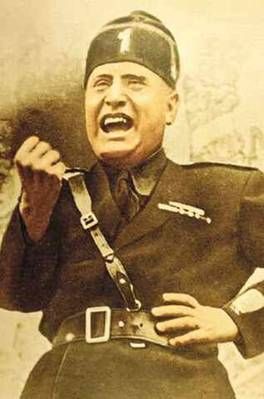Jody Cofer, MSU
Thursday, October 11, 2012 4:08 pm

Althoff, Linzy, Richardson and Thomas 2012-13 Research Scholar Fellowship recipients
MURRAY, Ky. — The office of Undergraduate Research and Scholarly Activity (URSA) at Murray State University has selected the recipients of its 2012-13 Research Scholar Fellowships. Each fellowship will provide the student-faculty team with a $1,500 student stipend and a $500 supply budget.
“As we announce our seventh cohort in the Research Scholar Fellowship program, I continue to be impressed with the work being done by our student scholars,” stated Dr. Bonnie Higginson, provost and vice president for academic affairs. “Faculty-mentored research or creative projects are one of the many ways Murray State is working to empower students. These experiences teach vital skill sets ranging from conducting high-quality literature reviews to analyzing findings to present before specific types of audiences to collaborating with others studying and working in their discipline. These skills and abilities prepare undergraduate students for success in graduate study and competitive careers.”
This year’s fellowship recipients are:
• Mark (Jordan) Althoff, a senior biological sciences major in the college of science, engineering and technology. He was awarded for his proposal, “Identification of Aminopeptidases that Influence Fertility.” Dr. Chris Trzepacz, assistant professor, will serve as his faculty mentor. Althoff is from Goshen, Ky.
“His previous work has already identified significant contributions to our understanding of aminopeptidase function in animals and the roles they play in mediating fertility. Some of this work has already been presented and recognized at the 2011 Kentucky Academy of Science meeting,” Trzepacz said.
The project uses C. elegans, a worm model organism, to gain insight into the mechanisms involved in an evolutionarily conserved signaling pathway that ultimately governs fertility. The pathways and cellular components that control fertility in humans also control fertility in worms. Therefore, the worm essentially acts as surrogate, and the results directly correlate with, and can be extrapolated to, human fertility. Ultimately, this research will provide insights and therapeutic interventions for people who have infertility issues.
• Benjamin Ray Linzy, a senior double major in criminal justice and history in the college of health sciences and human services and the college of humanities and fine arts, for his proposal, “Mussolini’s Shadow War: The Struggle Against Organized Crime in Fascist Italy.” Dr. David Pizzo, assistant professor, will serve as the faculty mentor. The project will also receive support from Dr. Paul Lucko, associate professor. Linzy is from Salem, Ky.
“I have no reservations whatsoever in giving Ben the autonomy and funding to undertake a serious undergraduate research project. His desire to integrate both his disciplines — history and criminal justice — in the same work would be valuable to both fields,” Pizzo commented.
The interwar period (1919-39) was a time of immense turmoil throughout Europe. In Italy, this manifested itself with the strengthening of local Sicilian crime syndicates. Soon after taking control of the country, Prime Minister Benito Mussolini (1883-1945) brought the full weight of his fascist regime to bear. This project will focus not only on the conflict between Mussolini and organized crime, but also on any lessons criminologists and historians can take away from these events.
• Bradley Michael Richardson, senior biological sciences major in the college of science, engineering and technology, for his proposal, “A Search for Species Identifiers between Alligator Gar (Actractosteus spatula), Longnose Gar (Lepisosteus platostomus), and Spotted Gar (Lepisosteus occulatus) Using Morphological Metrics.” Dr. Michael B. Flinn, assistant professor, will serve as faculty mentor. Richardson is from Cobden, Ill.
“He (Richardson) has a very good understanding of the natural world and is proficient at pointing out ecological patterns. I have observed him gain confidence over the last few years and I feel that this project will provide a nice path to his goal of obtaining a master’s degree in fisheries,” Flinn remarked.
Richardson’s project aims to provide biologists with species identifiers that are more concrete, and can be applied to all ages and sizes of fish. This one, simple aspect could greatly aid in rapid bioassessments and population estimates.
• Samantha Thomas, sophomore biological sciences major in the college of science, engineering and technology, awarded for her proposal, “A Phylogenetic Analysis of Hosta with New Molecular Markers.” Thomas will be assisted by co-investigator Nhan Huynh, also a sophomore biological sciences major in the college of science, engineering and technology. Dr. Dayle Saar, associate professor, will serve as faculty mentor. Thomas is from Murray and Huynh is from Dalat City, Lam Dong Province, Vietnam
“They are very enthusiastic about the project and have already committed time in the lab to learn the techniques and are working on increasing their efficiency and skills. Both have the maturity and work ethic to see this project to completion,” Saar noted.
The current literature on the systematics of the plant genus Hosta is based almost entirely on morphology and is somewhat subjective. This research project will develop molecular markers based on DNA sequences, and will produce a phylogenetic tree of the species utilizing current systematic algorithms for analysis.
Research Scholar Fellowships are reviewed through a competitive proposal process and have, since the inception of the fellowships, funded projects in disciplines spanning across the academic spectrum.
More information about URSA can be found online at campus.murraystate.edu/services/ursa/.